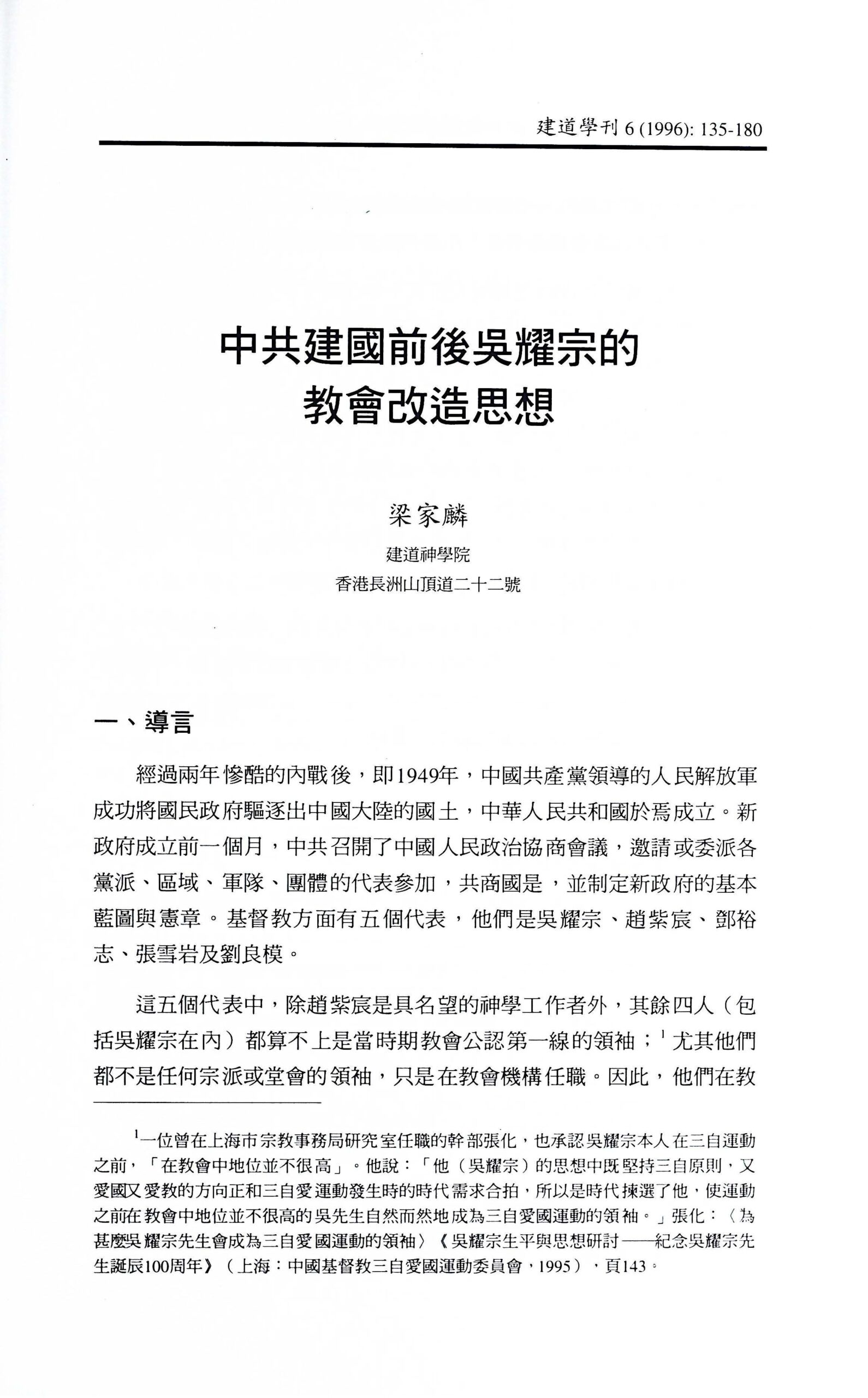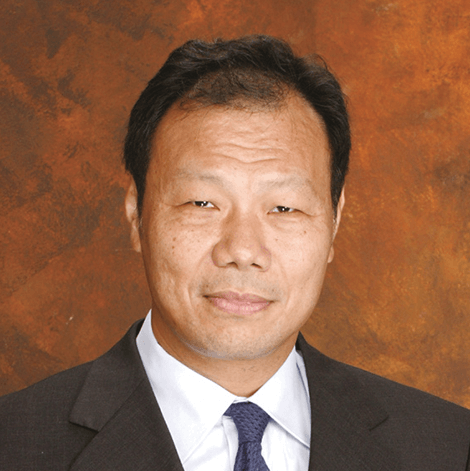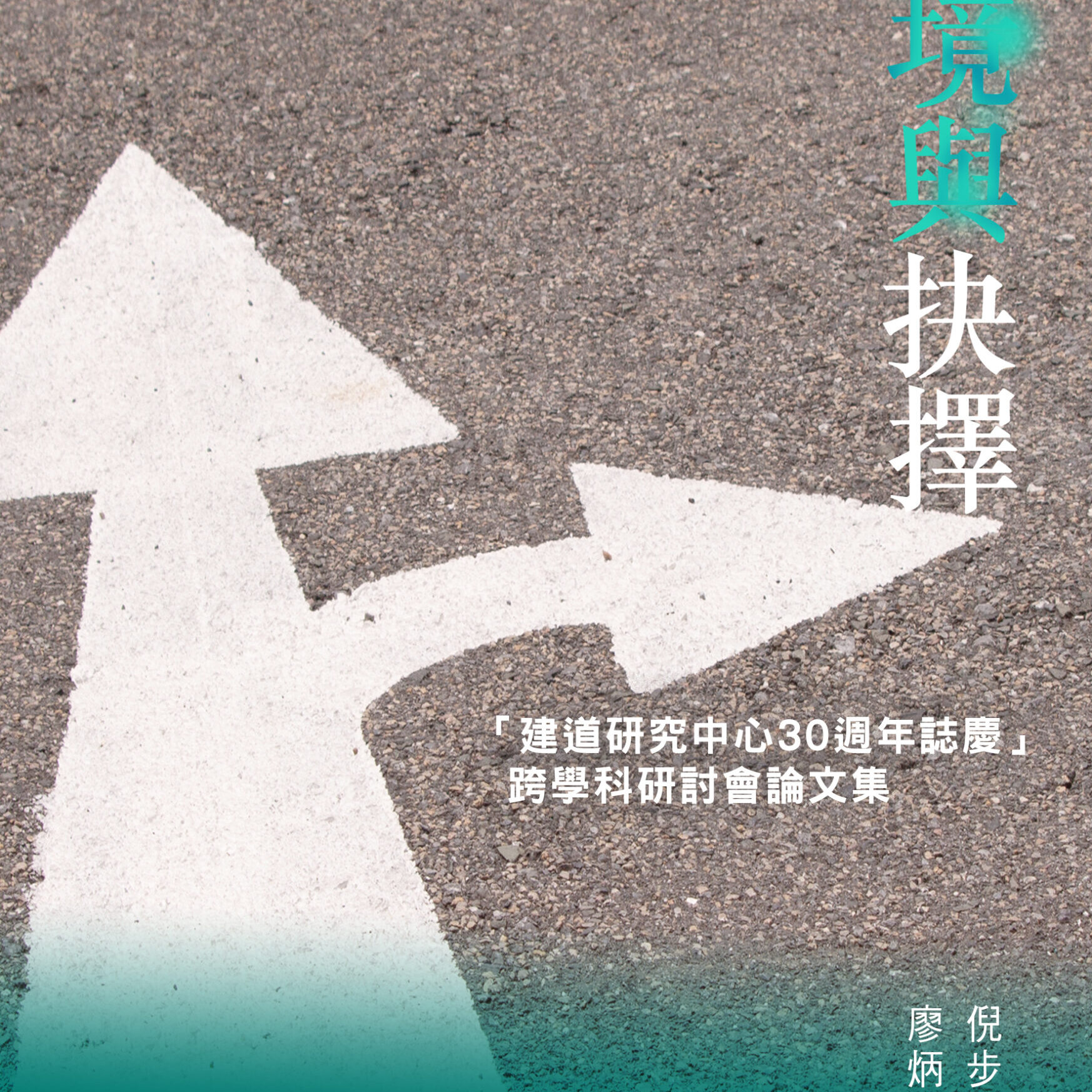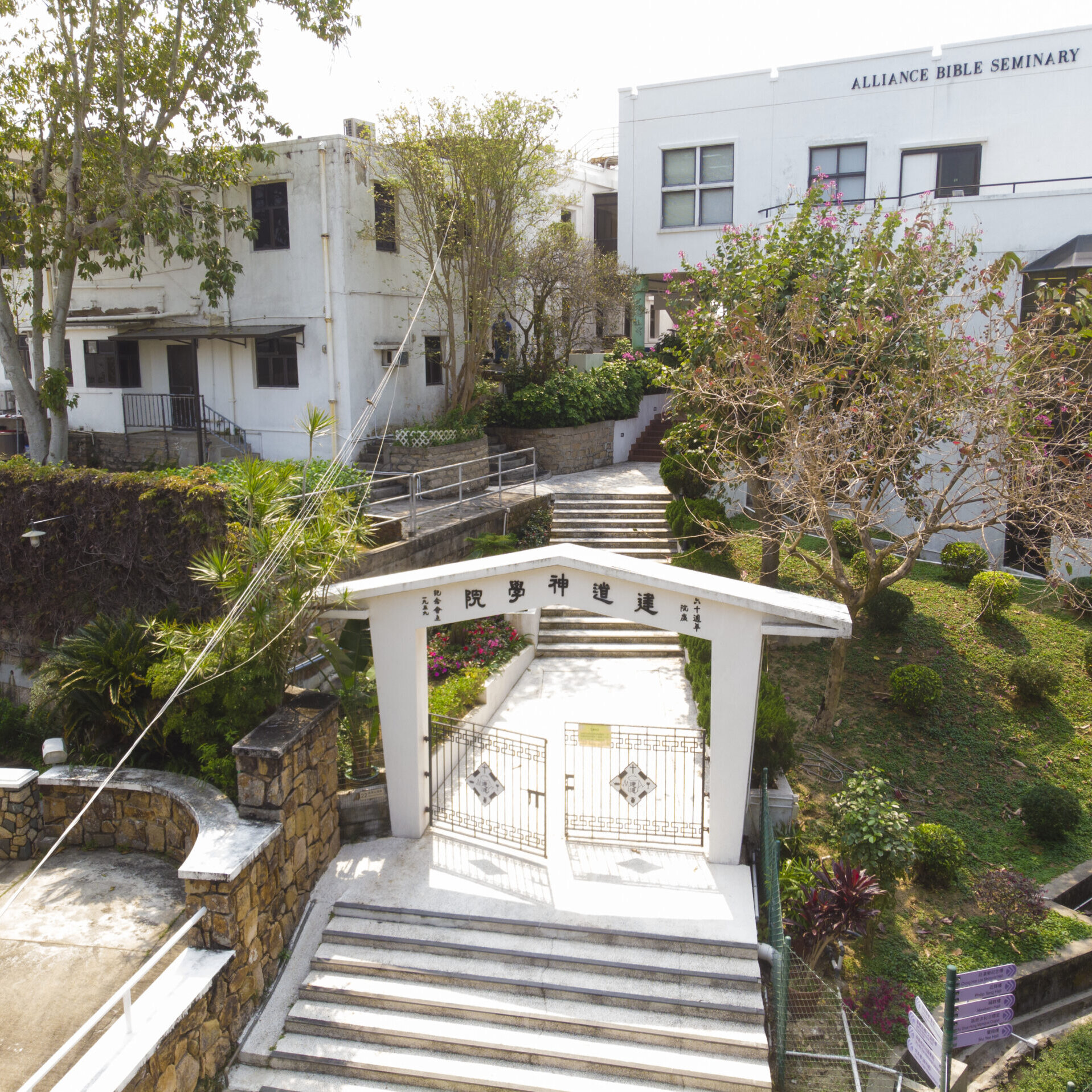中共建國前後吳耀宗的教會改造思想 / 梁家麟
撮要
五十年代的三自運動,對當時的中國基督教會,造成了嚴重的衝擊和傷害,影響至今未衰。吳耀宗作為運動的發起人與推動者,他與中共的關係及其在運動中扮演的角色,一直備受爭議。
本文徵用大量歷史文獻資料,說明吳耀宗確曾在三自運動發軔期中,扮演著釐訂改造教會方針的關鍵角色。自三十年代末起,他便與中共領導人密切交往, 又在歷次政治運動中被確認為中共的同路人,故在四九年初便已被邀出任中共顧問,協助處理與基督教的相關問題,且受委托在立國後領導及改組基督教,並推行一連串配合政府路線的社會主義改造,好肅清教會內部的反動力量及帝國主義思想。方是時,中共建國不久,並無一套完整的宗教政策,故大部分改造教會的措置,均是吳氏個人的主張;他不惟不是政府的傀偏,純粹受命行事,更可說是主動地引導著政府的施政方針,包括將反帝運動的矛頭指向基要主義與獨立教派。而吳耀宗也借助政治的力量,來貫徹推行其改造中國教會的理想。作者認為,正是在政府的政治動機與吳氏的神學動機相互配合下,才為教會帶來比純粹 政治迫害更嚴酷的命運。
ABSTRACT
The Three-self Patriotic Movement in China in 1950s had tremendous influences on the churches. Since Wu Yauzhong was the initiator of the Movement, the relationship between him and the communist government, and his role in the movement have long been matters of controversy. This article employs numerous historical documents to argue that Wu played a key role in formulating church reform schemes when the Three-self Patriotic Movement commenced. Being accepted as a follower in the various political movements and having a close relationship with the communist leaders since 1930s, Wu was invited to be the consultant to the communist government and to deal with the affairs relating to Christianity. He was asked to lead and reorganise the churches, and to pursue a series of socialist reforms so that the reactionary force and imperialist thought in the church would be rooted out. The communist government was newly set up, therefore it had no comprehensive religious policies and most of the measures it adopted were Wu’s ideas. Wu was not the puppet of the government, on the contrary, he actively guided the government policies. He tried to realize his dream of reforming the Chinese church with the help of political force. The author concludes that it was the combination of the political motive of the government and the theological motive of Wu that brought a grim destiny to the churches.
原載於《建道學刊》6期(1996),頁135-180。
作者簡介
梁家麟
傑出教授
榮譽院長
最新文章
新手牧者研究計劃(三):新手牧者的身心靈狀態 / 盧慧儀
2025 年 11 月 19 日
【教牧退休】好好理財 退而不憂 / 林本利
2025 年 10 月 1 日
【教牧退休】生前身後的管理:平安三寶 / 陸文慧
2025 年 10 月 1 日
編輯精選
[電子書]困境與抉擇:「建道研究中心30週年誌慶」跨學科研討會論文集/廖炳堂、倪步曉主編
2025 年 1 月 2 日
從梧州到長洲:建道神學院125年的挑戰與恩典 / 陳智衡
2023 年 10 月 1 日
微小教會的見證/高銘謙
2023 年 6 月 1 日








